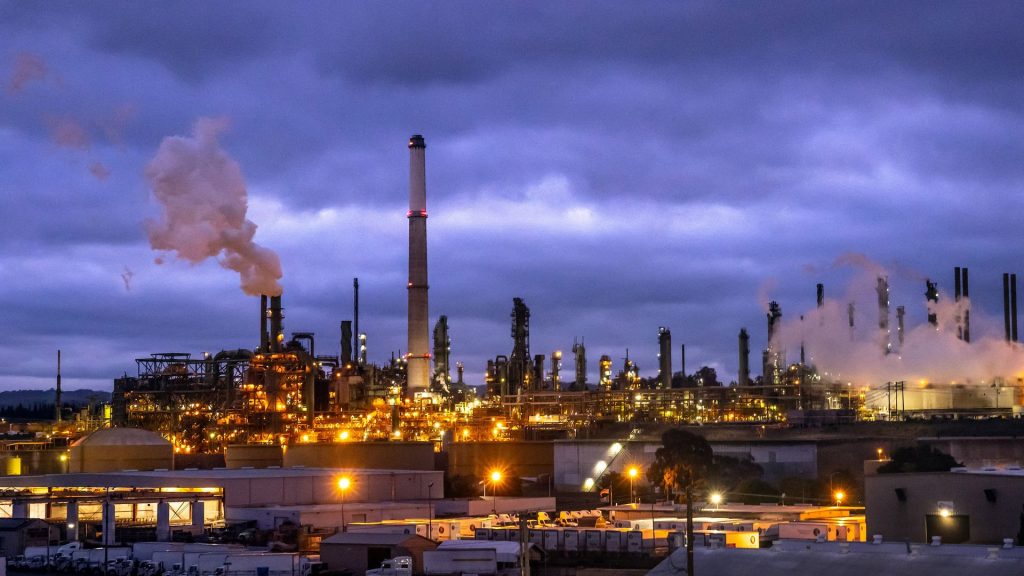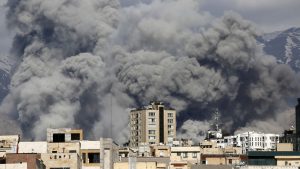Fire erupts at Valero refinery in California weeks after closure announcement

Flames and a thick black cloud of smoke rose from the Valero oil refinery in Benicia, Calif., on Monday, triggering emergency alerts and shelter-in-place warnings for nearby residents. The fire, which sent plumes of smoke across the Bay Area skyline, was brought under control after close to two hours. Benicia fire crews confirmed that while particulate matter was found during cleanup, air quality levels were not considered hazardous.
Valero said no injuries were reported during the May 5 fire. The cause of the blaze remains under investigation.
Valero plans to cease operations in Benicia, California
The incident comes just weeks after Valero Energy Corporation announced it would cease refinery operations at the site by April 2026. The company cited the state’s strict environmental regulations and rising operational costs as key reasons for the decision in an earnings call in April, including raising gas prices.
On X Tuesday, California Sen. Brian Jones posted that gas prices within the state could increase more than 75% in April 2026, jumping to $8.43 per gallon, according to a USC professor. The analysis by Michael Mische details, “The collective consequence of the pending refinery exits to the Golden State is potentially devastating to California’s economic growth and status as the fourth largest economy, in nominal terms, in the world.”
The Benicia facility currently processes roughly 145,000 barrels of crude oil per day and is California‘s sixth-largest refinery.
Unbiased. Straight Facts.TM
Since the 1980s, California regulations have led to the reduction of crude oil production within the state. In 1985, California produced 394 million barrels a day; in 2023, that number dropped to 112 million.
In a letter to the California Energy Commission, Valero said it would stop producing petroleum-based fuels and instead focus on future alternatives.
“We understand the impact that this may have on our employees, business partners, and community, and will continue to work with them through this period,” said Lane Riggs, Valero’s president, chairman and CEO.
However, the company plans to work with state and city officials to determine the future of its operations.
Valero says environmental restrictions are leading to the closure
The company previously faced regulatory challenges in the state. In 2024, Bay Area air quality regulators fined Valero $82 million for violating pollution standards and releasing excess emissions.
A 2019 inspection revealed Valero underreported emissions from their systems, which violated local regulations, according to the California Air Resources Board. “The refinery emitted an estimated 8,400 tons of these organic compounds in total over this period in violation of Air District regulations – an average of more than 2.7 tons for each day on which a violation occurred, over 360 times the legal limit.”
Benicia Mayor Steve Young responded to the news of the upcoming closure, noting the economic uncertainty it brings.
“Valero has long been a part of Benicia’s identity and economy,” Young said. “We will be working with Valero, regional partners, and state agencies to better understand the path ahead.”
Valero is not the only oil refiner scaling back in California. Phillips 66 announced it will convert two of its facilities to biofuel production, which uses renewable resources such as plants. A third Phillips 66 facility in Los Angeles will shut down completely.
Gov. Gavin Newsom tries to stop oil refineries from exiting California
Gov. Gavin Newsom called on the California Energy Commission through a letter in April to protect consumers by ensuring there is a reliable supply of transportation fuels. In the letter, Gov. Newsom asks the commissioners to help oil refiners see their value in California “even as demand for fossil fuels continues its gradual decline over the coming decades.”





